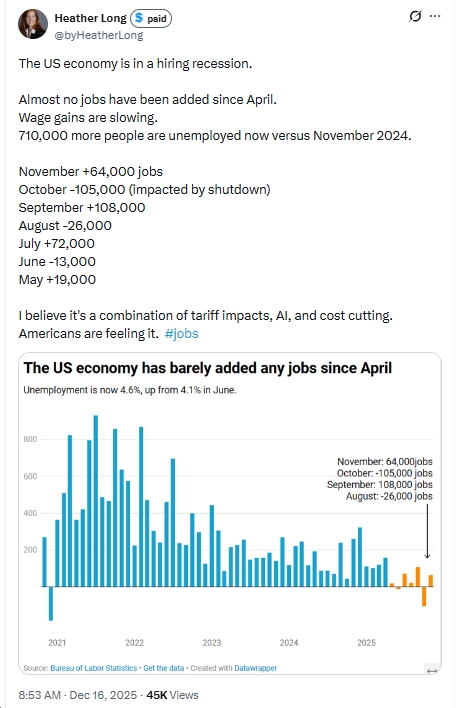I know Mark Warner comes in for a fair amount of criticism on this blog – and even more so in the national progressive blogosphere – for his “bipartisan” approach, his seeming willingness to “triangulate,” etc. However, there are times when I really like Mark Warner a great deal. This speech is one of those moments. Why? Because Warner makes several important points that need to be made, and makes them extremely well:
1. A government shutdown is not acceptable, and we can’t keep operating on continuing resolutions (“lurching from two week extensions, we are not providing…predictability”).
2. We need to look at our debt and deficit not “piecemeal,” but in a “comprehensive” way.
3. “The House budget plan does nothing significant to address our long-term deficit and debt issues,” as it focuses only on the tiny share (less than 12%) of the budget known as “domestic discretionary spending.”
4. Every day we fail to act, we’re seeing the amount that is spent just to pay of interest on the debt rising ever higher. In a few years, interest payments will exceed all domestic discretionary spending, which we’re arguing about right now.
5. “There is no silver bullet” here. In addition to cutting spending and raising revenues, we also need to grow the economy.
6. That will require investment so we can “out-innovate” the rest of the world. The House proposal focuses cuts out of key areas that are important to growing the economy (e.g., basic energy research). That is short-sighted.
7. We have to get our healthcare costs under control. This requires things like investment in NIH, which the House budget proposal cuts sharply. This is not a “good policy choice.”
8. We need to “out-educate our competitors,” yet the House bill would cut $5 billion from the Department of Education and over $1 billion from the Head Start program. Does that make any sense? Clearly not.
All true, all important points that needed to be made, all made very well by Senator Warner. Hopefully, at this point, Warner has a great deal of credibility “across the aisle,” as he likes to say, on these issues. If so, and if Republicans are listening to him, they will change course from the short-sighted, destructive, ideologically rigid (not to mention extreme) one they’re on now, and start having that “adult conversation” they so much love to talk about.



![Thursday News: “Europe draws red line on Greenland after a year of trying to pacify Trump”; “ICE Agent Kills Woman, DHS Tells Obvious, Insane Lies About It”; “Trump’s DOJ sued Virginia. Our attorney general surrendered”; “Political domino effect hits Alexandria as Sen. Ebbin [to resign] to join Spanberger administration”](https://bluevirginia.us/wp-content/uploads/2026/01/montage010826.jpg)













